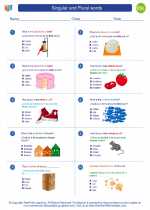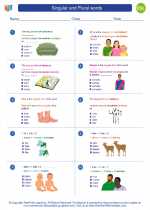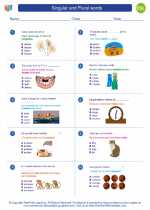Singular and Plural Words
In English, nouns can be singular or plural. Singular nouns refer to one person, animal, place, thing, or idea, while plural nouns refer to more than one.
Forming Plural Nouns
To form the plural of most nouns, you can add "-s" to the end of the singular noun. For example:
- Singular: cat | Plural: cats
- Singular: book | Plural: books
- Singular: house | Plural: houses
However, there are some rules to keep in mind when forming plural nouns:
- If a singular noun ends in -s, -ss, -sh, -ch, -x, or -z, you add -es to form the plural. For example:
- Singular: bus | Plural: buses
- Singular: class | Plural: classes
- If a singular noun ends in -y preceded by a consonant, change the -y to -i and add -es to form the plural. For example:
- Singular: city | Plural: cities
- Singular: baby | Plural: babies
Irregular Plural Nouns
Some nouns have irregular plural forms and do not follow the typical rules. For example:
- Singular: child | Plural: children
- Singular: tooth | Plural: teeth
- Singular: foot | Plural: feet
Practice Exercise
Now, let's practice forming plural nouns with the following exercise:
- Form the plural of the following singular nouns:
- Singular: car | Plural:
- Singular: box | Plural:



